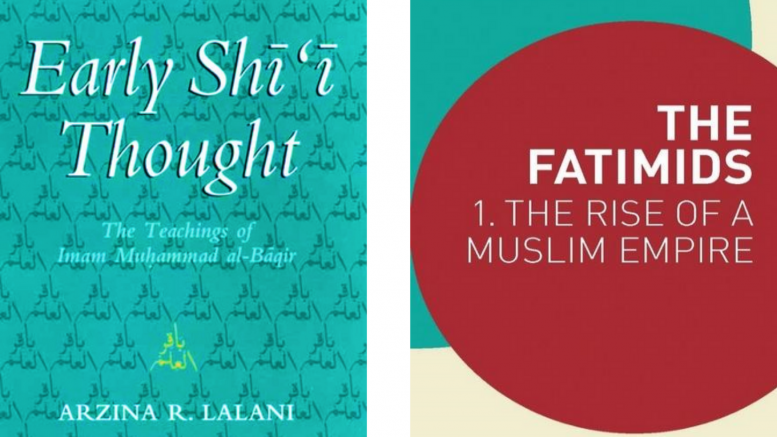A sneak peek into the works of some renowned Ismaili scholars
The Fatimids – The Rise of a Muslim Empire, written by Shainool Jiwa, a specialist on Fatimid studies, gives a fresh perspective on the rise of the Fatimid empire through a compelling and insightful narrative. Imam-caliph of a unique moment in the history of the Ismaili da’wa, and one giving a glimpse of the pride of his great-grandfather, al-Mahdi, when father, son and great-grandson were gathered together:
“One day, al-Qa’im bi-Amr Allah, upon him be peace, was in his father al-Mahdi’s majlis (gathering), seated in front of him. His son, (Isma’il] al-Mansur, was standing in front of his grandfather, when al-Mahdi said to him, ‘Bring me your son’, that is, al-Mu’izz li-Din Allah. So his nursemaid brought him. He was one-year-old or a little older. Al-Mahdi took him on his lap and kissed him. Then he said to his son al-Qa’im bi-Amr Allah, ‘O Abu’l-Qasim, there is not a gathering more illustrious on earth than this one, as four imams are gathered here.”
(Reference: Jiwa, S., 2017. The Fatimids: 1-The Rise of a Muslim Empire. Bloomsbury Publishing)
Early Shi’I Thought: The Teachings of Imam Muhammad al-Baqir: Using largely ignored published and unpublished Shi’i sources, Arzina R. Lalani explores Imam al-Bāqir’s critical contributions to Islamic thought in its early formative period. This book highlights the Imam’s role in the formulation of the function and nature of the Imamate itself.
Imam Muhammad al-Baqir was one of the most knowledgeable Muslims of his age and played a significant role in the history of early Islam. It is said that even scholars felt humbled in his presence because of his wide learning and deep wisdom. When an enquirer once approached Imam al-Baqir and asked if he had seen God, this is what the imam said:
“Although eyes do not see Him, yet the heart can see Him with the reality of faith. He is neither known by analogy, nor is He felt by the senses, nor can He be likened to human beings. He is described by signs or the verses (of the Qur’ān) and known by symbols; he is not unjust in His judgements, that verily) is Allāh, there is no God but He.”
(Reference: Lalani, A.R., 2004. Early Shīʿī thought: the teachings of Imam Muḥammad al-Bāqir. Tauris)
Please contact your local ITREB office for copies.

